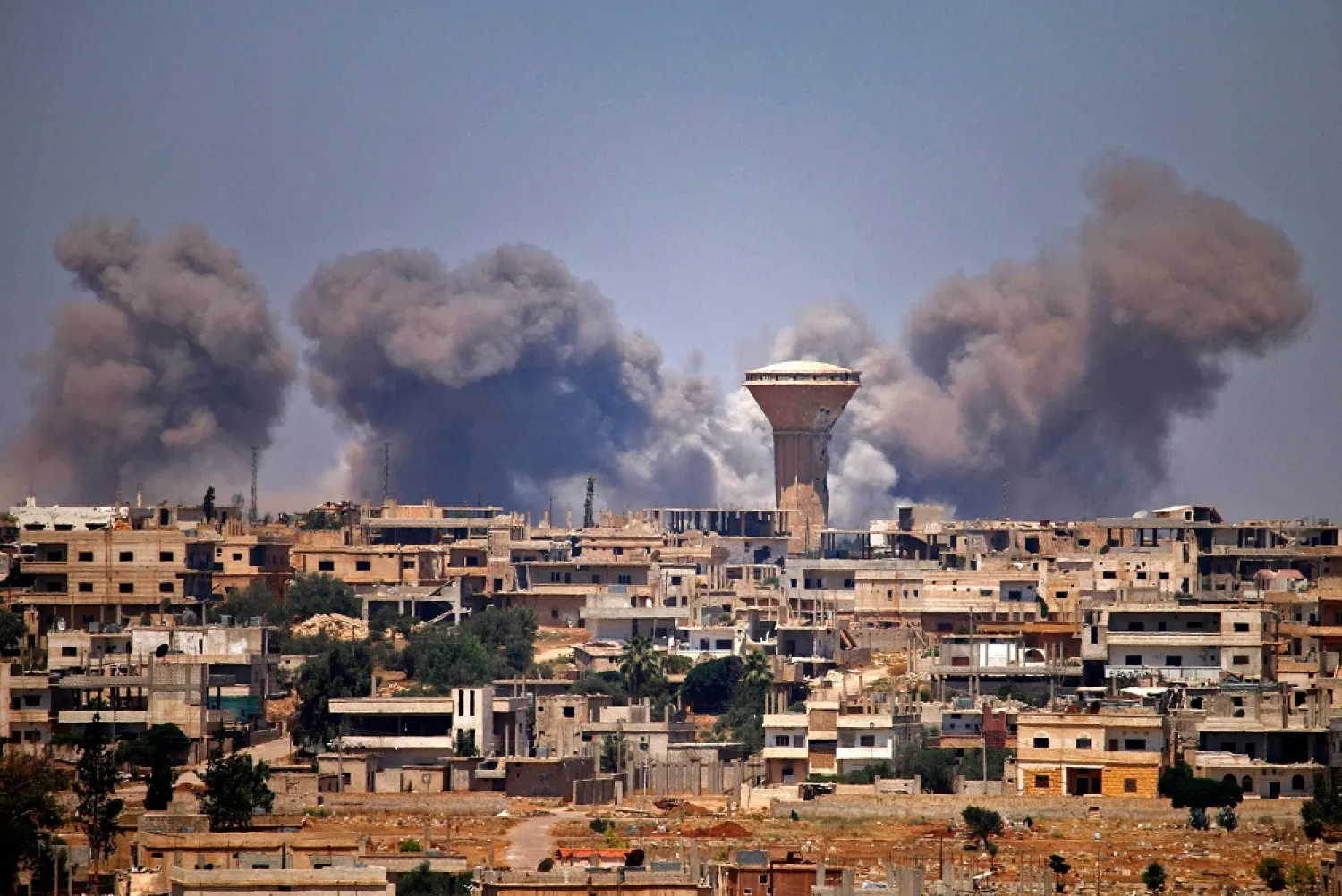Cautious calm prevailed in Daraa al-Balad in southern Syria, ahead of a new round of negotiations, while the regime forces tightened the siege on the area amid the displacement of thousands of civilians.
The Syrian Observatory for Human Rights said calm was restored throughout the Daraa governorate, even though tensions remained after local tribes issued a statement rejecting regime reinforcements in the area.
The war monitor noted that a number of civilians were wounded on Friday as regime forces and the Fourth Division used heavy machine guns and artillery to attack residential neighborhoods in Daraa al-Balad. Dozens of shells were launched on Thursday from the checkpoints surrounding the city.
Meanwhile, the regime forces set up sand barriers and blocked the only road that citizens were using to flee Daraa al-Balad due to the military escalation.
The United Nations High Commissioner for Human Rights (OHCHR) announced, in a statement on Thursday, that since July 28, the escalation of hostilities has forced at least 18,000 civilians to flee Daraa al-Balad.
Many of them fled to the city of Daraa and to the surrounding areas, the statement noted, adding that hundreds of people have taken refuge in schools in Daraa al-Mahatta, referring to the areas under the control of the regime forces in the city.
The Daraa governorate is the only area where some opposition fighters remained after the regime forces regained control over the south in July 2018.
A settlement agreement sponsored by Moscow put an end to military operations and maintained the presence of opposition fighters who kept light weapons, while the regime forces did not deploy throughout the governorate.
Since 2018, the governorate has witnessed sporadic clashes between the regime forces and opposition fighters, dozens of whom have left over the past two years to northwestern parts of the country.
The United Nations High Commissioner for Human Rights, Michelle Bachelet, said in a statement on Thursday: “The stark picture emerging from Daraa al-Balad and other neighborhoods underscores how much at risk civilians there are, repeatedly exposed to fighting and violence, and in effect under siege.”
“With the only route out of the city under strict Government control, tanks roll down the streets and people face checkpoints and movement restrictions while their property is seized and stolen,” she added.
Bachelet continued: “I remind the parties to the conflict of their obligations under international humanitarian law, in particular as regards the protection of civilians, and under international human rights law.”









